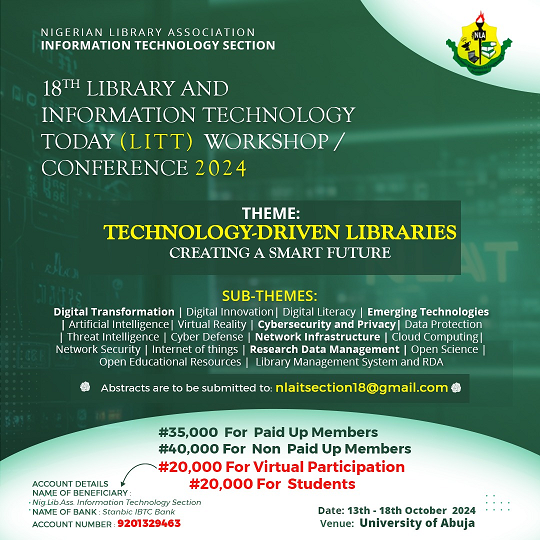THE DEVELOPMENT AND FUTURE OF ACADEMIC LIBRARY AND INFORMATION SCIENCE PROFESSION IN NIGERIA: 1962-2023
Keywords:
Academic Library, Development, Library and Information Science, NigeriaAbstract
This study examines the development and future of library and information Science profession in Nigeria for the past sixty (1962-2023) years. The study adopted narrative content analysis with extensive literature review. The study x-rayed the development of academic library and information profession which was propelled by the establishment of the first university library school in Nigeria at the university college Ibadan during the colonial era. The study further examines the establishment and the role played by the Nigerian Library Association (NLA) and later the establishment of the Librarians’ Registration Council of Nigeria (LRCN). Findings on the study reveals services rendered by the academic library and information before the digital era to include; acquisition and circulation of library materials for patrons use, reference services, interlibrary transactions, statistics of users, etc. The study further reveals the challenges of emerging trends in library and information to include; incorporation of Information and Communication Technology (ICTs) into the university library routines, struggle for higher degrees, struggle for publications, migration to teaching, etc. the study highlighted the future expectations of library and information science profession in Nigeria to include: globalization of library and information services, virtual library services, marketing library and information services and, digital divide control. The study concluded that, for Library and Information Science Profession in Nigeria to continue to strive well, with effective and efficient provision of library and Information services in the digital age, Nigerian academic libraries and information practitioners must be well trained to be able to cope with the technological changes, and there should be wide application and adaption of ICTs in academic libraries in order to provide equitable access to information in the country and, that the curriculum in library schools in Nigeria should be reviewed regularly to accommodate new ICTs. The study concludes that Government/government agencies, Academic library management, Library professional bodies, and librarians should work concertedly towards effective transformation and continuous development of library and information science profession in Nigeria.







